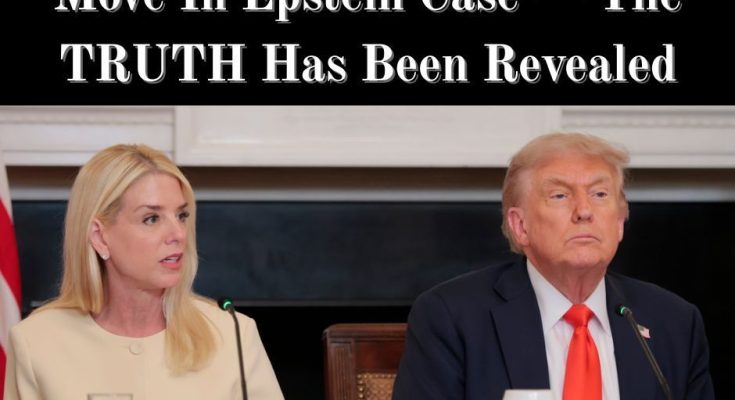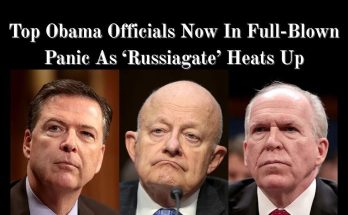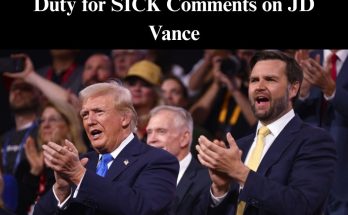On Tuesday, the Trump administration urged two federal judges to unseal grand jury testimony related to the cases that resulted in the indictments of the late financier Jeffrey Epstein and British socialite Ghislaine Maxwell on sex trafficking charges, amidst ongoing public concern regarding the administration’s management of the situation.
The Justice Department had initially sought permission on July 18 to disclose transcripts of the confidential witness testimony provided years prior in both cases. However, U.S. District Judges Richard Berman and Paul Engelmayer, located in Manhattan, requested that prosecutors furnish more comprehensive legal justifications for this action.
In a pair of court filings submitted shortly before midnight, federal prosecutors contended that unsealing the records was justified due to the “abundant public interest” surrounding the Epstein case and the persistent scrutiny of how it was handled by federal authorities, as reported by Reuters.
The Epstein case has long been a center of conspiracy theories, and in recent months, President Trump has encountered increasing pressure to declassify documents pertaining to the federal investigations into Epstein and Ghislaine Maxwell.
Epstein died by suicide in jail in 2019 while awaiting trial on sex trafficking charges, according to the official autopsy report. He had entered a plea of not guilty. Maxwell, his longtime associate, was convicted in 2021 on multiple sex trafficking charges and is currently serving a 20-year sentence in Florida. She also pleaded not guilty and is presently appealing to the U.S. Supreme Court to overturn her conviction.
Earlier this month, Trump stated that he instructed Attorney General Pam Bondi to seek the release of grand jury transcripts in both cases. His announcement followed the Justice Department’s conclusion that Epstein’s death was a suicide and that there was no incriminating client list—a determination that has frustrated many of Trump’s conservative supporters, who suspect a cover-up involving Epstein’s connections to wealthy and influential individuals and believe he may have been murdered while in custody.
Even if the judges consent to the release of the transcripts, it remains uncertain whether the documents will disclose any new or significant information. Much of the crucial testimony—including accounts from alleged victims, associates of Epstein and Maxwell, as well as law enforcement officials—was already made public during Maxwell’s four-week trial in 2021, according to the report.
The grand jury transcripts will not include all of the unreleased materials held by the government. Investigators frequently pursue leads that do not result in charges or interview potential witnesses who ultimately do not testify before a grand jury.
On July 23, U.S. District Judge Robin Rosenberg in Florida denied the administration’s request to unseal records from Epstein-related grand jury proceedings in 2005 and 2007. The judge determined that the request did not satisfy any of the narrow legal exceptions necessary to make such material public.
“Eleventh Circuit [federal appeals court] law does not allow this Court to grant the Government’s request; the Court’s hands are tied—a point the Government concedes,” she stated in a 12-page opinion, as reported by Fox News.
This effort was part of a larger initiative for transparency regarding Epstein’s sex trafficking network. The grand juries in question convened in 2005 and 2007.
In 2008, Epstein entered a guilty plea to a state-level prostitution charge in Florida as part of a controversial plea deal that was widely criticized for its leniency. He served only 13 months in jail under that agreement.
Last week, Deputy U.S. Attorney General Todd Blanche, who previously served as Trump’s personal attorney, met with Ghislaine Maxwell over two days to assess whether she could provide information about others involved in criminal activities.
Neither Maxwell’s attorney, David Markus, nor Blanche has revealed any details regarding their discussions.
WASHINGTON D.C. – In a significant move signaling a renewed push for transparency in the Jeffrey Epstein sex trafficking scandal, the Department of Justice (DOJ) has formally asked federal judges in New York to release the long-secret grand jury transcripts from the cases that indicted both Epstein and his associate Ghislaine Maxwell. The unprecedented request comes amidst intense public pressure and a directive from President Donald Trump for greater disclosure.
The DOJ’s recent court filings on Tuesday urged Manhattan-based U.S. District Judges Richard Berman and Paul Engelmayer to unseal the confidential testimony and records from the grand juries that led to the indictments of the late financier in 2019 and Maxwell in 2020. This follows an earlier request on July 18, to which the judges had asked for further legal justification.
In its latest submission, the DOJ emphasized the “abundant public interest” and “intense historical interest” in the Epstein case, arguing that the public’s right to access outweighs the traditional secrecy surrounding grand jury proceedings in this “exceptional circumstance.” The Justice Department, under Attorney General Pamela Bondi and Deputy Attorney General Todd Blanche, stated that the move is consistent with “increasing calls for additional disclosures.”
The request to unseal grand jury materials is a rare occurrence, as such proceedings are typically kept secret to protect witnesses, prevent flight of targets, and encourage full testimony. Legal experts note that federal law allows for unsealing only under limited exceptions, though a 1997 U.S. Circuit Court of Appeals ruling cited by the DOJ suggests judges have wide discretion when public interest is high.
This development follows an earlier decision by a federal judge in Florida last week, who denied the Trump administration’s request to unseal records from grand jury investigations into Epstein in that state from 2005 and 2007. That judge ruled the request did not meet the necessary exceptions for release. However, the New York federal court is bound by different circuit court precedent, potentially paving the way for the release of more information.
The DOJ also clarified in its Tuesday filing that the grand juries that indicted Epstein and Maxwell did not hear directly from alleged victims. Instead, the Epstein grand jury heard from a single FBI agent in 2019, while the Maxwell grand jury heard from the same FBI agent and a New York Police Department detective. Prosecutors tempered expectations by noting that much of the information conveyed to the grand juries has since become public through Maxwell’s 2021 trial or civil litigation.
The administration’s push for transparency comes after an early July announcement from the Justice Department that it would not be releasing additional investigative files from the Epstein probe, a decision that drew significant backlash from some of President Trump’s conservative supporters and fueled conspiracy theories. President Trump subsequently directed Attorney General Bondi to seek the release of grand jury transcripts.
Deputy U.S. Attorney General Todd Blanche recently met with Ghislaine Maxwell herself over two days, an interview her lawyer described as productive, with Maxwell reportedly answering all questions truthfully. This, alongside the grand jury unsealing efforts, indicates a multifaceted approach by the DOJ to address the lingering questions and public demand for answers in the Epstein saga.



